Recently, Tico (Y10), won the third prize in the prestigious Chinese High School Mathematics League. Tico explains that Pao School’s whole-person philosophy has greatly benefited his personal growth. Even from early days in Year 1, the school leaves ample time for students to explore personal interests and hobbies, a process of in which teachers provide the students with support and encouragement as well as knowledge outside of the typical curriculum.
Since its establishment in 1981, the National High School Mathematics League has
grown to become the most well-known youth mathematics competition in China.
Providing a platform to inspire excellence in mathematics, the competition is jointly
hosted by the Chinese Ministry of Education, local education departments and
educational institutions. Ultimately, the league aims to improve students’ mathematics
level, develop their potential, broaden their horizons, cultivate their independent
thinking skills, encourage innovative thinking, and promote all-round development.
According to Tico, his passion was first sparked when he was at the Primary School. After the main content was covered, his teacher often used the last few minutes in class to expand the students’ mathematical knowledge. For example, Tico still remembers how the teacher introduced geometry – the “most beautiful area in maths” – through exploring topics such parallel lines and opposite angles.
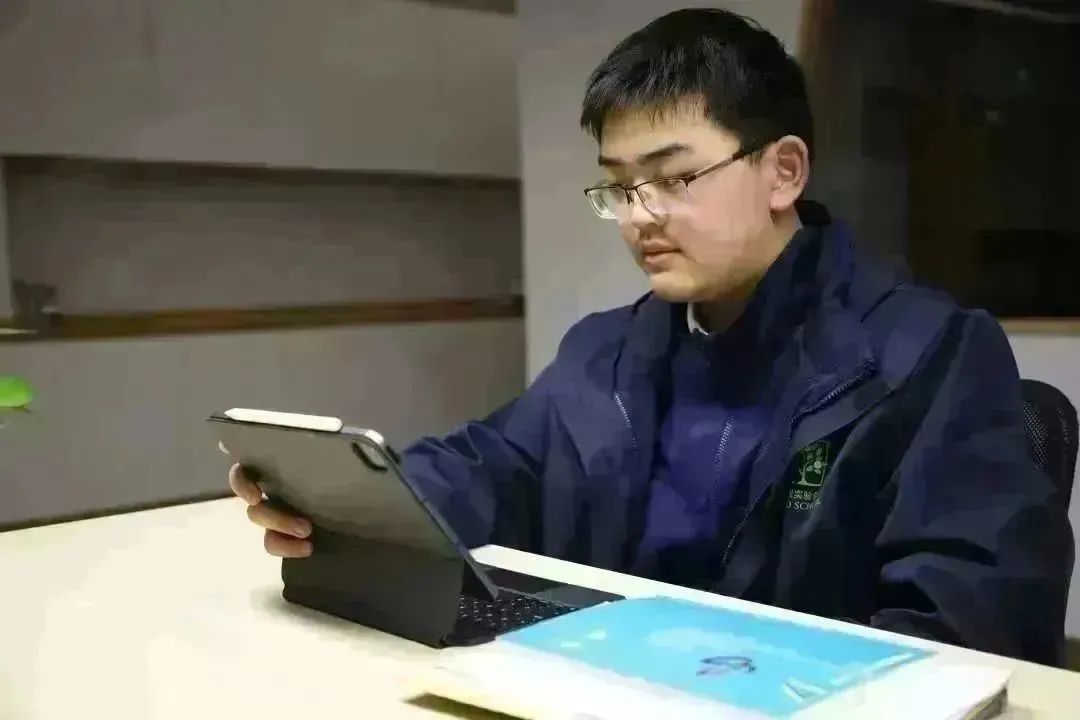
Not only that, the school also regularly organises interesting mathematics activities to allow students explore new concepts that they will learn later on in school. Though the topics are hard, the teachers always introduce abstract and complex mathematical concepts in an easily digestible way. For example, during an introduction to the concept of functions, the teacher asked everyone to imagine a function as though it was a machine. Every time you input a number into the machine, the machine will then spit out a number – which ultimately creates a list of numbers. The teacher then turned this list of numbers into geometric shapes, which helped Tico connect the idea of numbers and geometry together for the first time.
“I am particularly fascinated with the process of discovering new mathematical laws,” says Tico. Upon entering Middle School and learning the Riemann Hypothesis, his interest prompted him to delve deeper into analytic number theory. During the process, Tico realised that the mathematics foundation taught in the classroom is very important. To fully build and improve his math foundation, Tico decided to take part in the Mathematics League. “The purpose of taking part was not to win prizes, but to solidify my knowledge by participating in advanced-level competitions,” he says.
In fact, one of the driving forces that sparked Tico’s interest in maths was the fun activities that each campus holds to expand students’ learning. This starts from day one at Pao School, with students at the Primary School often taking part in activities to apply mathematics in real-life situations. On Family Day, parents came to the school to experience the joy of mathematics with their children by taking part in a variety of activities. Alongside their parents, Year 1 students played games with “numbers within 10” and Year 2 students used small balls and sticks to build models of cubes and cuboids. Each activity was designed to allow students to gain a greater understanding of mathematical concepts through hands-on practise.
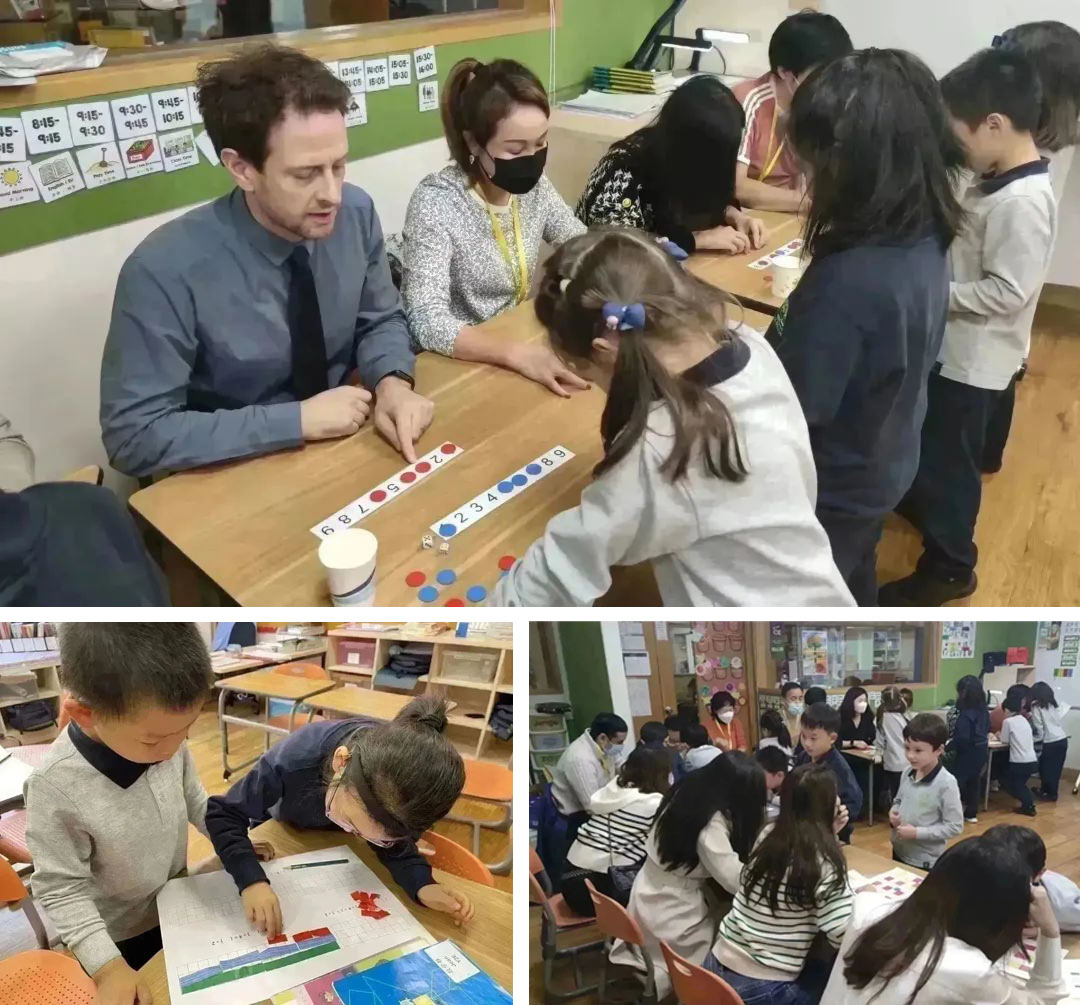
Primary Math Family Day
Vivian Shen, Primary School Head of Maths, explains, "it is important that students not only memorise specific concepts such as formulas, but also learn to apply the knowledge as a basis upon which to think logically. Teachers work hard to establish the connection between this knowledge and real-life application, because no one can predict what mathematics may be used for in the future."
From Primary School to Middle School, mathematics classes begin to introduce concepts such as functions and geometry, which requires students to develop more advanced ways of thinking. Middle School teachers have designed activities, such as in last month’s Maths Week, in the hope that students can learn to observe the world with mathematical eyes and solve problems with mathematical thinking.
Each year group took part in different activities related to the curriculum for their respective level: Year 6 students looked at the golden ratio from the perspective of maths and art; Year 7s used their graphics and art knowledge to design patterns and create Chinese paper-cuts; and Year 8s learned about how the proof of the Pythagorean Theorem was developed and how it can be applied to real life.
Pao School’s Middle School mathematics serves as a connector between the Primary and the High School through curriculum design and teaching. Mathematics class not only focuses on developing students’ mathematic knowledge, skills and way of thinking but also places importance on students’ core mathematical literacy. Furthermore, teachers focus on their students’ individual learning and development needs, arrange interdisciplinary learning activities, and teach students to solve relatable real-life problems – which helps students to understand the world through a mathematical lens.
——Sue Li
Middle School Head of Maths
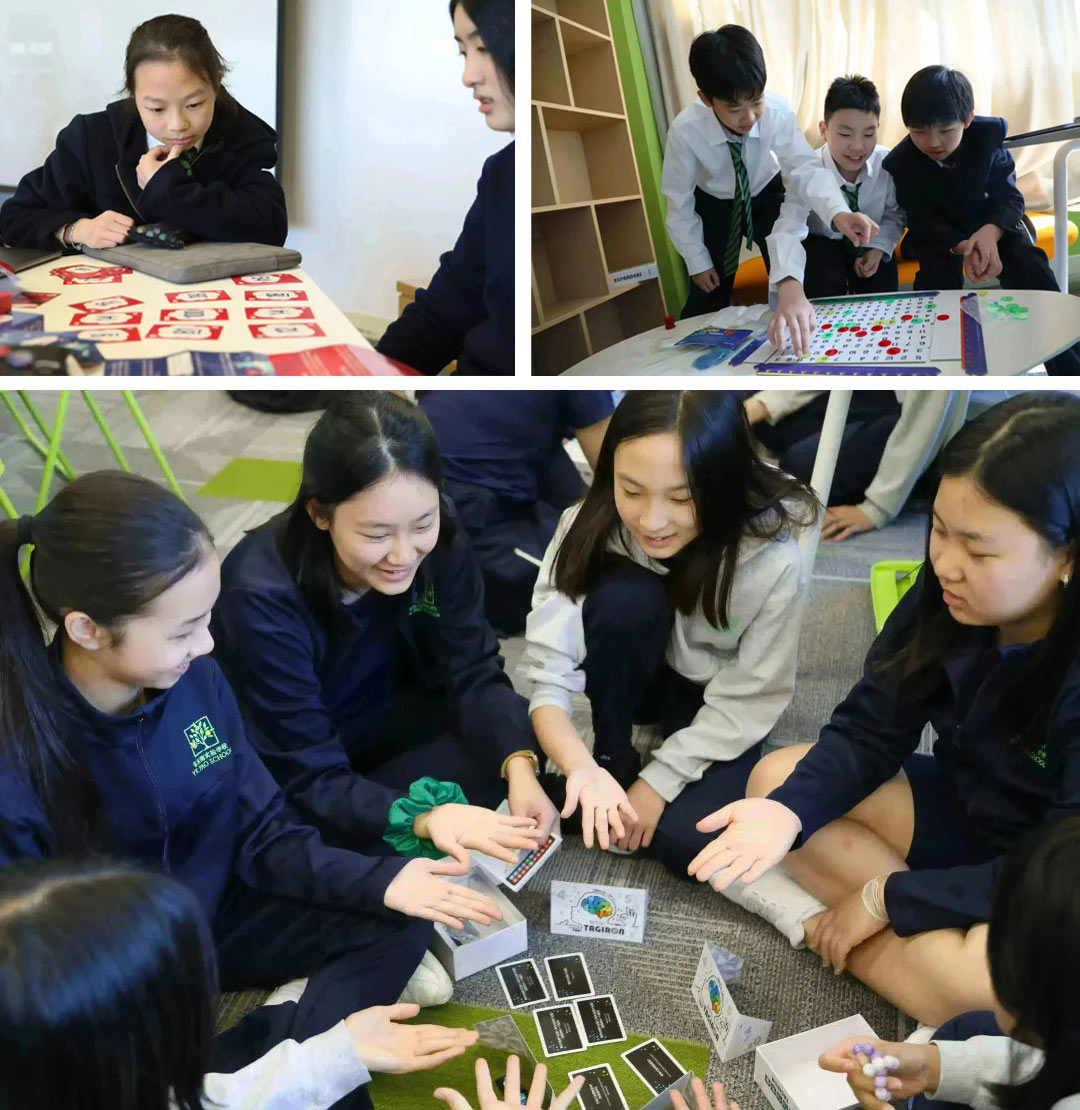
The High School Maths Department also held a variety of activities to celebrate Pi Day. At lunchtime, students participated in games such as “Buffon's Needle”, “Guess 1/3 of the average”, and “The smallest unique number”. In addition, students also submitted entries into the “Maths and…” competition.
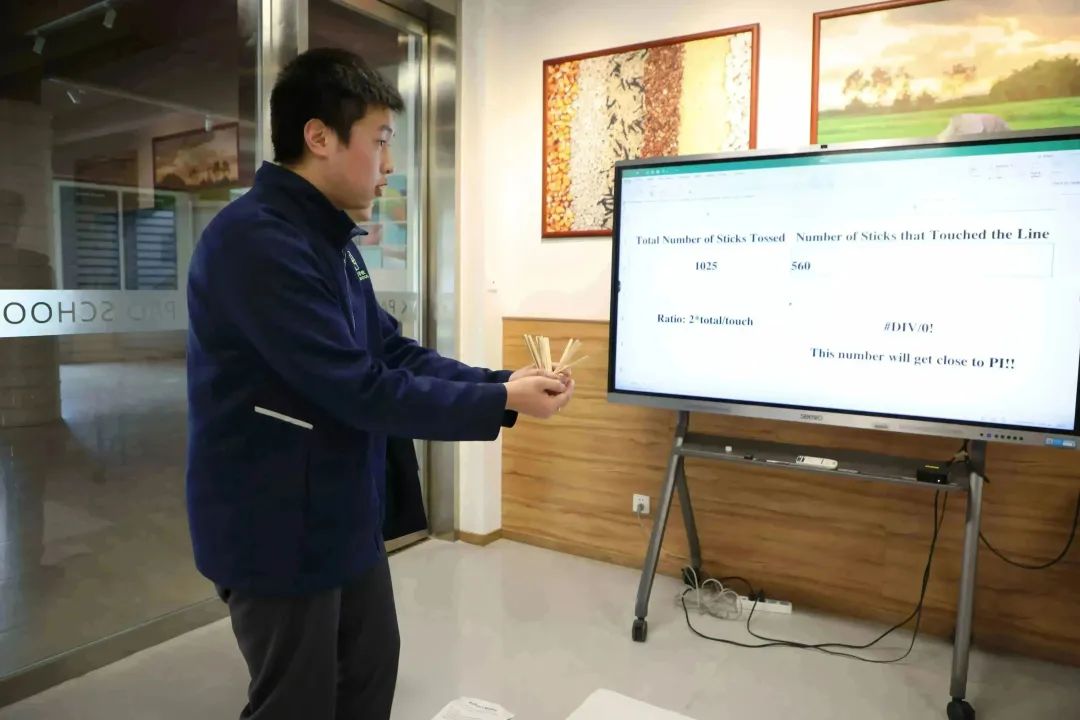
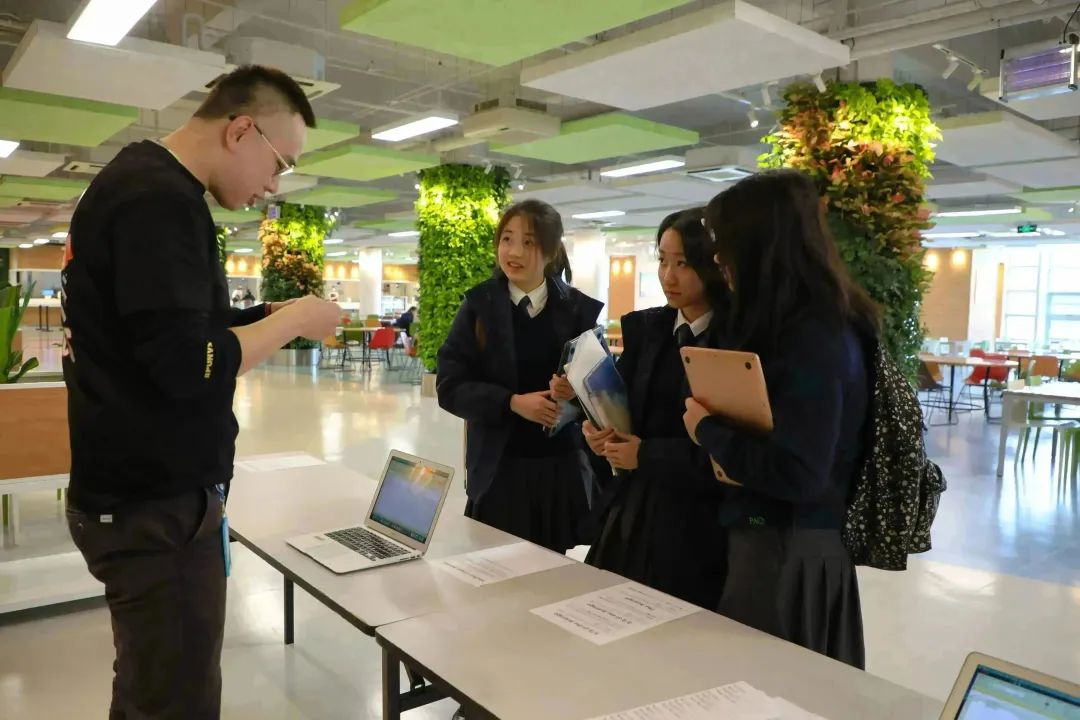
Both in and out of the classroom, student development is inseparable from the dedication of teachers. When recalling his journey at Pao School, Tico thanked his teachers for their support. His mathematics teacher Bonnie Yu often explains complex theories, connecting them with other subjects such as physics and chemistry and sharing real world applications. Jeff Zhang, on the other hand, has provided Tico with guidance and support in advanced mathematics.
High School mathematics department were recently selected to participate in the Excellence in Young Teachers of Private Schools Programme. As part of the programme, the High School Maths Department successfully received funding to conduct a two-year-long research project entitled: The development of an excellent young teaching team based on the cultivation of students' mathematical modeling and inquiry ability.
The Excellence in Young Teachers of Private Schools Program was established by the
Shanghai Municipal Education Commission. The programme aims to cultivate
outstanding young teachers at the primary and secondary schools in private school
sector, whilst further improving the overall level of teaching in such institutions.
Through this project, teachers from the Pao School High School will also
improve their scientific research and teaching skills.
High School mathematics is rather complex, and can be quite challenging for some students. Within the context of the New Curriculum reform, we seek to cultivate students' core literacy in areas such as mathematical modelling, data analysis and logical reasoning. Through mathematical modelling and combining theory with practice, students learn to appreciate the beauty of mathematics.
——Jessica Yang
High School Head of Maths